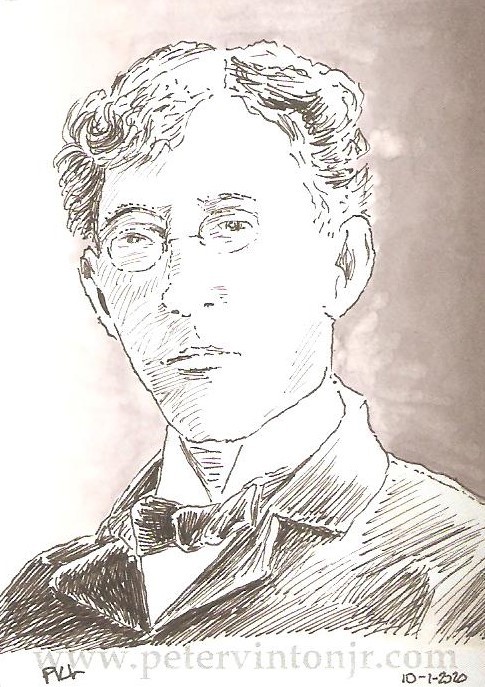
An ongoing illustrative history study
This piece originally posted 11/17/2020
Prelude | 51 | 52 | 53 | 54 | 55 | 56 | 57 | 58 | 59 | Email |
|---|
"Mob law is the most forcible expression of an abnormal public opinion; it shows that society is rotten to the core."
A self-professed intellectual, T. (Timothy) Thomas Fortune was born into slavery in 1856 Florida, but moved with his family to Delaware after the Civil War. Working in a print shop during Reconstruction helped to crystallize his own personal and career direction, and in 1876 he moved to Virginia to take a job as a journalist, aggressively writing and advocating on behalf of Black Americans in the South. He later moved to New York where his writing took on even greater prominence. In 1881 he established The New York Globe, which later became the New York Age, one of the most influential Black newspapers in the U.S. In 1884 he published his seminal work, "Land, Labor, and Politics in the South."
Fortune's time at the New York Age led to a close --but tumultuous-- association with Booker T. Washington, who disagreed with some of Fortune's more militant stances on integration and equality, especially as they applied to the South. Fortune even edited Washington's first autobiography, "The Story of My Life and Work." Ideologically, Fortune ultimately broke with Washington and described himself as more spiritually aligned with Frederick Douglass (see Lesson #2 in this series). Later in life Fortune found himself editor-in-chief of yet another prominent Black newspaper, Negro World, a position he held until his death in 1928.
A Project Gutenberg edition of "Land, Labor, and Politics in the South" may be read at:
https://en.wikisource.org/wiki/Black_and_White:_Land,_Labor,_and_Politics_in_the_South
Next page - Lesson 56: Victoria Earle Matthews